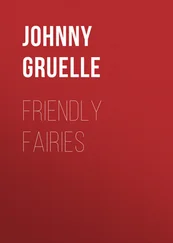"No."
"Can it be that Zohara won't let her leave?"
"Anything is possible."
"But what's so scary over there?"
"Why scary?"
His curt answers seem intended to put her off, so she sits on the adjacent bed, as if to announce, I'm not budging from here.
"In the kitchen they told me you had a terrible headache. Did you find anything here to make it better?"
"No."
"Why not?"
"Sijjin Kuang locks up the medicine cabinet. Because sometimes women from the area sneak in and take medicines they don't need."
"And you have no key?"
"Why should I? Sijjin Kuang is always nearby."
"So what will you do now?"
"I'll wait for the pain to pass. And if you don't mind, close the door, the light makes it worse."
He shields his eyes with his hand.
A quiver of pity runs through her. "If you've decided to lie down, why not in your bed?"
"For one thing it's not my bed, and here in the infirmary I'm safe from the commotion of the researchers. Tonight they'll go back to the dig, and tomorrow, after you leave, I'll go back to my place."
She gets up and closes the door, but he doesn't remove his hand from his eyes, as if to say that even behind a closed door he is not open to conversation.
"Maybe drink something?"
He doesn't answer.
"I suggested you should drink."
"Later."
"Should I bring you something?"
"Later."
But she goes out anyway into the front room. The African women have left the dirt mound and are now at the doorstep, perhaps hoping that the white woman can also dispense medicine, murmuring at her as she fetches Yirmi a glass of water. When she offers it to him he doesn't drink, but asks her to set it on the floor, but she insists, drink, so you won't get dehydrated. He continues to refuse, and she keeps insisting, and finally he yields, lifts himself up and drinks from the glass and mutters, you always managed to get your way in the family. Everyone always went to the restaurant you wanted, drove the route you wanted. Maybe, Daniela smiles, it's because you knew deep down that what I want is good for others. And she takes the empty glass and asks, more water? But he does not reply, and this time, she gives in.
Silence. Outside, despite the heat, the wind is whistling. In the inner room the blinds are closed, but points of light glow white in the cracks. The murmur of the African women grows louder. Maybe they have entered the infirmary now and are longingly examining the lock on the medicine cabinet. For a moment she considers whether to tell him now about the mission she has accepted, but figures that in his current state of mind he is likely to object, and she has a strong desire to keep her promise. She has a strange belief that these dry bones, from an ape that gave rise to all humankind, are meaningful for Israelis as well.
"Were you thinking of showing me something else on my last day here? Doing something?" she asks her brother-in-law cautiously.
He props himself up, shoves the pillow behind his back, and looks hard at her.
"You would surely like to see another unusual animal, like the elephant with the cyclops eye."
"Definitely… happily."
"But what can I do, Daniela, I don't have another animal like that."
"If you don't, then you don't."
Beyond the door the African women babble on, like a crystal brook.
And suddenly, almost without thinking, she says, "Listen, last night I read the Song of Songs."
"In English?"
"Yes. And it's no less beautiful and moving than the original, which kept echoing for me in the translation."
He is silent, his glance wandering.
"And when I read all eight chapters I understood what you felt. A poem like this pours salt on the wounds."
Yirmiyahu gets up and begins pacing around the small room, as if trying to chase her away. And suddenly he explodes, "What's going on here? You came to Africa because of Shuli, but in the end you're forcing me to talk about Eyal."
"Forcing you?" She is shocked. "And it's not connected?"
"Everything is connected and also not connected," he says irritably, "but I should never have told you about Eyal's last night."
"What's happening to you?"
"That story makes him ridiculous."
"That's totally absurd." She objects with all her might. "His innocence was noble; he is not ridiculous."
But he persists. There is a deep substratum to this episode, which goes beyond personal psychology. Surely if an Israeli soldier takes over a strange house and intimidates its residents, in essence he only continues to dishonor them by suddenly risking his life to hand over a clean bucket.
"I can't begin to understand what you're getting at."
"Obviously you don't understand, and apparently you never will." He speaks in a low voice, yet his words resonate with inner turmoil. "For all of their brainpower, the Jews are incapable of grasping how others see them. I'm talking about real others, those who are not us and never will be us. Because only this way is it possible to begin to understand, for example, why that Palestinian, who got a considerable sum from me just to tell what happened with that friendly fire, did not seem at all impressed by what Eyal did. He just took the money and went off without a word of thanks, or a word of condolence, or any praise at all for the consideration and good manners that were supposedly displayed. And I, with idiotic obsessiveness, could not reconcile myself to such indifference. So again I turned to my Jerusalem pharmacist, and pestered him to arrange an additional meeting with this man. At night, in the heat of the intifada, with a twofold mortal threat, from our forces and the opposing ones. And this was a first glimpse into the abyss we are toppling into, or, more accurately, that you are."
Here is the genetic defect, it strikes Daniela, as she sees his red eyes flaring at her in the dark room. There is no need to go out in nature to find it.
7.
WHEN THE TINY elevator lands with a thud, shake, and groan and the narrow grille is opened, the two passengers find its inventor waiting in an armchair beside the big bed, a glass of tea in his hand, an electric heater glowing red by his feet, and his cane on his lap. Well, little lady, he addresses the expert, did you hear the yowling of a cat, or do you think our hostess is hallucinating?
"No hallucination and no cat, grandpa," she answers emphatically. "There are all kinds of sounds in your adorable elevator, but only because of loose electrical contacts and because of phenomena that are common in an old system like this, where the commutator collects dirt and even tiny particles of metal that flake off from the piston. I've already found the connector box you hid behind the picture of Carl Gustav Jung, and on the roof I located the power cable you camouflaged among the clotheslines. But your son is terrified of electrocution. With the turn of one screw I could have disconnected the system, but he prevented me, by force. What's going on? Did you cause him some electrical trauma in his childhood that makes him such a coward?"
The old man laughs, then chides her.
"First of all, speak with respect about my son, because he's a grandfather too. He got through his childhood in my house without any traumas, but when he was a student at the Technion he was mainly taught how to predict disasters. In this case, however, I agree with him. I would also prefer that you not touch live electrical connections, because I didn't take out insurance on you."
"Nonsense. You weren't worried about electrocution when you connected the elevator straight to the electrical pole in the street."
"First of all, it wasn't me, but a bitter old pensioner from the electric company, who wore special insulated gloves and some sort of sleeves that enabled him to work with live wires and set up free electrical power for his friends. Only after he was caught in the act did they start to take care at the electric company that their retirees shouldn't be in any way embittered."
Читать дальше












